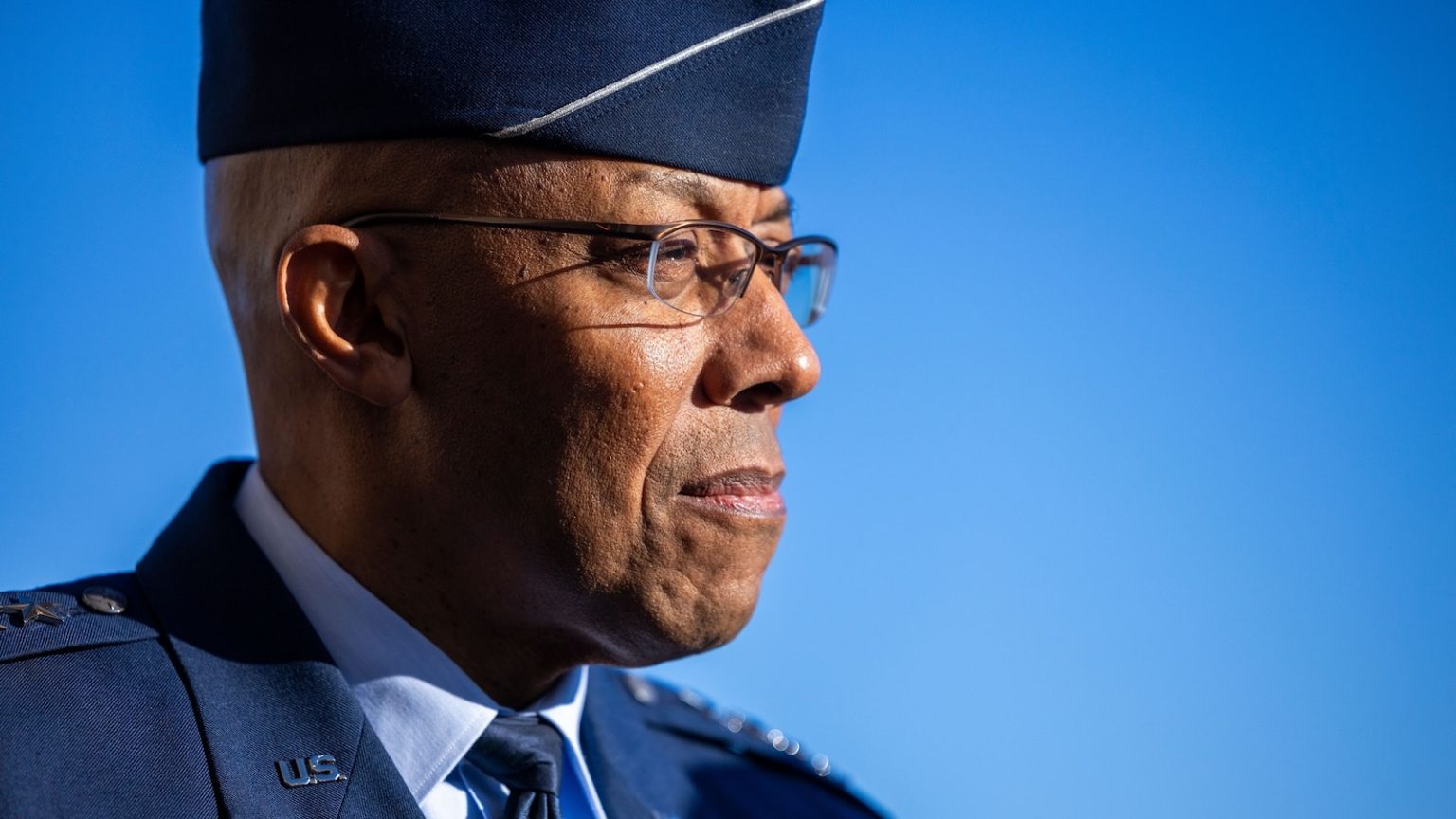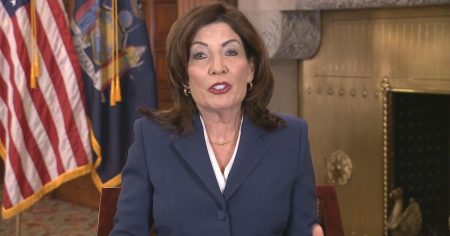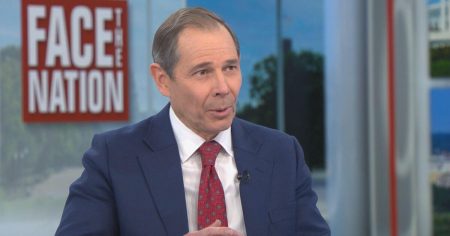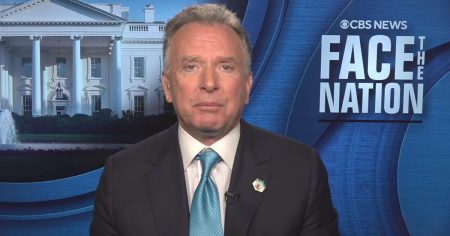Top Military Leaders Face Uncertain Futures Amid Defense Secretary’s Potential Purge
Introduction: A Shifting Landscape in the Pentagon
In a dramatic turn of events, two of the most senior military leaders in the United States—Gen. C.Q. Brown Jr., Chairman of the Joint Chiefs of Staff, and Adm. Lisa Franchetti, Chief of Naval Operations—find themselves on a list of high-ranking officers who could potentially be removed from their positions by Defense Secretary Pete Hegseth. This revelation, first reported by CNN, has sent shockwaves through the Pentagon and sparked intense speculation about the future of the U.S. military’s leadership. The possibility of their removal has raised questions about the criteria for leadership in the armed forces, the role of diversity and inclusion initiatives, and the broader direction of the Department of Defense under Secretary Hegseth.
General C.Q. Brown Jr.: A Trailblazing Leader Under Scrutiny
Gen. C.Q. Brown Jr., the first Black Air Force chief of staff and the current Chairman of the Joint Chiefs of Staff, has been a pivotal figure in the U.S. military since his nomination by the Trump administration in 2020. Brown’s tenure has been marked by his vocal advocacy for racial justice and diversity within the military. Following the murder of George Floyd in 2020, Brown shared his personal experiences with racism in a powerful video message, reigniting conversations about systemic inequality within the armed forces. He has also championed initiatives to increase diversity among officer ranks, including a 2022 memo aimed at reducing the percentage of white officer applicants while boosting representation from other racial backgrounds.
Brown’s commitment to these issues has made him a target of criticism from Secretary Hegseth, who has openly questioned Brown’s qualifications and judgment. In his book, The War on Warriors, Hegseth accused Brown of prioritizing "woke" ideologies over military readiness and combat effectiveness. Hegseth has also expressed skepticism about Brown’s promotion to the highest ranks, implying that his advancement was driven by political considerations rather than merit. Despite these criticisms, Brown remains a respected figure within the military, known for his leadership and dedication to modernizing the armed forces.
Admiral Lisa Franchetti: A Decorated Navy Leader in the Crosshairs
Adm. Lisa Franchetti, the Chief of Naval Operations since November 2023, is another high-profile officer whose future is now in doubt. Franchetti, who made history as the first female member of the Joint Chiefs of Staff, has faced similar criticism from Secretary Hegseth. In his book, Hegseth mocked her lack of combat experience and her master’s degree from the University of Phoenix, an online institution. Hegseth’s dismissive tone reflects his broader disdain for what he views as unnecessary diversions from the military’s core mission of warfighting.
Franchetti’s spokesman declined to comment on the reports, stating only that they were "aware of the reports but have nothing to add." This restraint contrasts with the public spat between Hegseth and Brown, who has been more vocal about his views on diversity and inclusion. Franchetti’s silence may reflect a strategy to avoid inflaming tensions, but it also underscores the precarious position she and other senior officers find themselves in under Hegseth’s leadership.
Secretary Pete Hegseth: A Hawk on "Woke" Ideologies
Defense Secretary Pete Hegseth has been a vocal critic of what he calls "woke" ideologies within the military, blaming them for undermining the institution’s effectiveness. Hegseth has repeatedly called for the firing of officers he believes have embraced these ideas, arguing that the military should focus solely on warfighting and not be distracted by social justice initiatives. In his book, he attacked both Brown and Franchetti, accusing them of prioritizing public relations and political correctness over the core mission of the armed forces.
Hegseth’s views gained attention during his confirmation process, when he criticized Brown and other officers for their roles in promoting diversity, equity, and inclusion (DEI) initiatives. He has also made clear his disdain for officers he perceives as insufficiently committed to the military’s combat mission. While Hegseth has softened his rhetoric somewhat since taking office—praising Brown during a recent encounter at the Pentagon—his track record suggests that he is inclined to take a hard line against officers he views as out of step with his vision for the military.
The Implications of Removing Top Military Leaders
The potential removal of General Brown and Admiral Franchetti would have significant implications for the military and the broader defense establishment. Both officers are highly decorated and have played critical roles in shaping the military’s strategy and operations. Their removal would likely send shockwaves through the ranks, raising concerns about the politicization of the armed forces and the criteria for leadership in the 21st century.
Moreover, the removal of Brown and Franchetti would likely deepen divisions within the military over issues of diversity and inclusion. Brown’s advocacy for racial justice and his efforts to promote diversity within the officer corps have made him a polarizing figure, with some praising his leadership on these issues and others criticizing him for diverting attention from the military’s core mission. Franchetti, as the first female member of the Joint Chiefs, has also faced scrutiny for her role in advancing gender equality within the Navy.
The stakes are particularly high for Brown, who has been a trailblazer for racial justice in the military. His removal would likely be interpreted as a setback for efforts to address systemic inequality within the armed forces. At the same time, his continued service would signal that the military remains committed to fostering a more inclusive and equitable institution.
Conclusion: A Crossroads for the U.S. Military
The uncertainty surrounding the futures of General Brown and Admiral Franchetti highlights a broader struggle within the U.S. military over its identity and purpose in the 21st century. As the Department of Defense grapples with the challenges of a rapidly changing global security landscape, the debate over diversity, inclusion, and the role of the military in society has taken center stage.
For General Brown, who has been a vocal advocate for racial justice and diversity, the possibility of removal represents a potential turning point in his career. While he has faced criticism from Secretary Hegseth and others, his commitment to these issues has resonated with many within the military and beyond. His removal would likely be seen as a significant blow to efforts to address systemic inequality within the armed forces.
Admiral Franchetti, on the other hand, has faced criticism for her perceived lack of combat experience and her role in advancing gender equality within the Navy. Her potential removal would raise questions about the progress made toward greater gender diversity in the military and whether that progress is being rolled back under the leadership of Secretary Hegseth.
Ultimately, the decisions surrounding the futures of General Brown and Admiral Franchetti will have far-reaching implications for the U.S. military. Whether Secretary Hegseth chooses to remove them or allows them to continue in their roles, the outcome will reflect the values and priorities of the Department of Defense under his leadership—and the direction in which the military is heading in the years to come.















